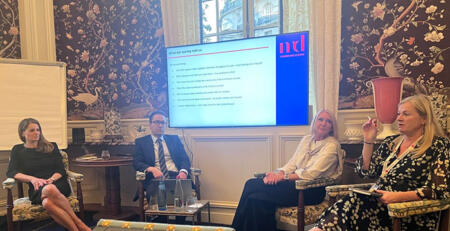Submission deadlines are always a stressful time, but our CEO Melissa Davis shares some last-minute tips to ensure your legal directories submissions are in the best shape possible.
‘I’m in directory submissions hell,’ has become part of the exchange of pleasantries between PR and marketing people at this time of year. They’re racing for deadlines, begging for extensions, dealing with partner egos, chasing departments for information and client details, and fitting what has been sent into the strict formats demanded by The Legal 500 and Chambers and Partners.
It’s worth remembering that a lot of the effort and stress can be wasted if certain basics aren’t right. So here’s a few last-minute tips to make it all worthwhile.
Deadlines matter
We’ve all had to ask for an extension – and of course the process depends on the enormous efforts and the directory bookings that firms and chambers make. But Chambers and The Legal 500 run pretty lean research teams and there’s a limit to the attention they can pay each person – do you really want to use up their attention span negotiating an extension instead of telling them how great your lawyers are?
Some wait until all their submissions are ready and do the lot at once – but you’re better off meeting deadlines for the ones you can get in on time and sending the late ones later. When it comes to referees, getting your list in on time really isn’t negotiable. The directories take a much stricter line on contacting referees sent in late – you may risk your hard-earned referees not being contacted at all.
Name names
Be clear about who was the star of each matter you’re putting forward. And be clear about who in marketing or PR ‘owns’ each area. Researchers may try to contact any name they see – lawyers should be told this, and not act surprised or irritated if contacted. There’s always a question in the researcher’s head – if they’re rude to me, are they going to be great with clients and colleagues?
Use the best examples
This sounds obvious – of course your best work will be in there. But will it be hidden because everything bar the kitchen sink’s been added? Only do specific details for the cases and deals you’d be happy to see in the final write-up. Researchers and editors think anything you mention is ‘representative’. There are ways to note just how much you do – find a way to summarise, quantify and compare with rival practices.
Client references
Make sure the clients you list will speak for the people you’re most keen to see praised in the final chapter. Researchers stop when they’ve followed up enough of these, so really stress the most important ones.
Spend time on feedback
Feedback on last year’s write-up matters – most researchers turn to it first. Are they dealing with happy or cross lawyers? Feedback is possibly the most important section – not least, being brief, it’s in a position of cutting through masses of detail to make a case. Be specific, and find ways to quantify and express frustrations – ‘We act for half the FTSE 100, but were ranked below X firm,’ say, or, ‘We had five of the leading cases in this field – X firm had just two’.
Respect the researchers
There’s a mismatch between a partner at the pinnacle of their career and an underpaid 24-year-old researcher. Of course there is. They might be covering five areas, and are rarely an expert in the area of law.
But this is different to law – and they have access to things you don’t: your competitors, their submissions; your clients; competitors’ clients; opponents. When it all starts, a researcher can seem to know nothing – they’ll know a lot more by the time they draft a version. It’s worth reminding the lawyers of that – the directories aren’t insulting them by throwing junior people at the task. It’s a different task.
And if the lawyers are wise, they’ll realise that these people are at the start of their careers. In five years’ time, they might be that reporter at the FT or Bloomberg that you’re desperate to get quoted by.
If MD Communications can help you finesse your directories submissions, I hope you’ll get in touch.












